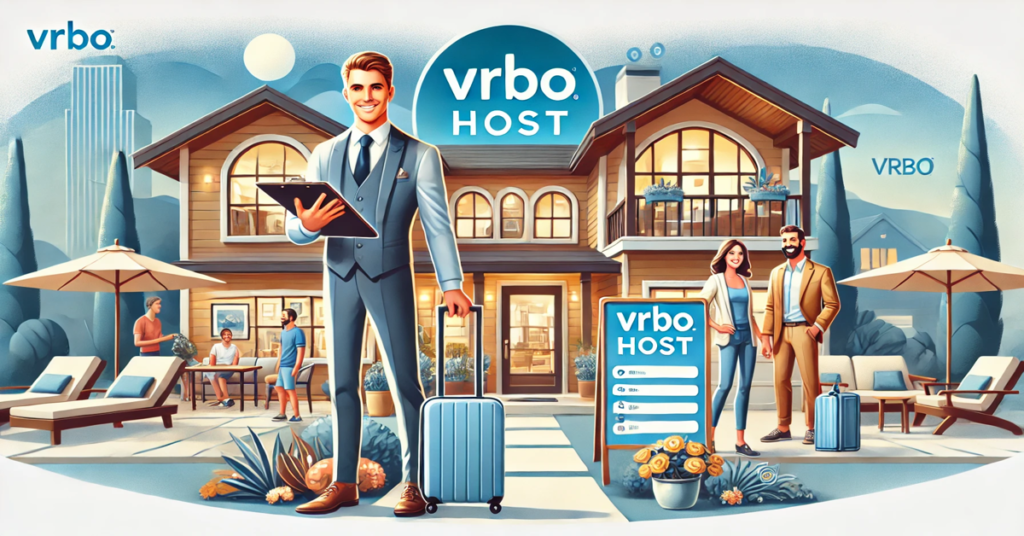Vacation rental platforms like Vrbo (Vacation Rentals by Owner) have revolutionized the way travelers find accommodations and how property owners monetize their homes. Vrbo offers a robust platform for homeowners to list and rent their properties, but becoming a successful host involves meeting specific requirements and understanding the platform’s expectations. This article provides a detailed guide on Vrbo host requirements, along with insights into best practices, potential challenges, and tips to excel as a Vrbo host.
What is Vrbo?
Vrbo is a leading vacation rental platform that connects property owners with travelers. Established in 1995, Vrbo operates as part of the Expedia Group, providing access to millions of travelers worldwide. The platform allows property owners to rent out their homes, condos, or vacation properties for short-term stays, making it a lucrative option for those looking to earn extra income.
Vrbo Host Requirements
To list your property on Vrbo, you must adhere to specific guidelines and meet certain requirements. These are designed to ensure a seamless experience for both hosts and guests.
1. Property Requirements
- Ownership or Legal Authority: Hosts must either own the property or have legal authorization to rent it out.
- Suitable for Guests: The property should be clean, safe, and equipped with basic amenities to ensure a comfortable stay.
- Compliance with Local Laws: Hosts must comply with local zoning regulations, licensing, and tax requirements for short-term rentals.
- Insurance: Hosts are encouraged to have adequate property and liability insurance to protect against potential risks.
2. Listing Requirements
- Accurate Description: Provide an honest and detailed description of the property, including its size, amenities, and location.
- High-Quality Photos: Upload clear, high-resolution images that showcase your property’s best features.
- Pricing and Availability: Set competitive prices and maintain an up-to-date calendar reflecting the property’s availability.
- Amenities: Clearly list all amenities, such as Wi-Fi, parking, kitchen facilities, and pet-friendly policies.
3. Communication Requirements
- Timely Responses: Hosts should respond promptly to guest inquiries and booking requests, ideally within 24 hours.
- Proactive Communication: Provide clear instructions and updates to guests before, during, and after their stay.
4. Hospitality Standards
- Cleanliness: Maintain high cleanliness standards to ensure guest satisfaction.
- Guest Support: Be available to address guest concerns or issues during their stay.
- Check-In and Check-Out: Offer flexible and convenient check-in and check-out processes.
5. Financial Requirements
- Payment Setup: Hosts must provide bank details for receiving payouts.
- Tax Compliance: Comply with tax obligations, including collecting and remitting occupancy taxes where required.
- Cancellation Policies: Set clear cancellation policies and honor them consistently.
6. Reviews and Ratings
- Encourage Reviews: Request guests to leave honest reviews to build credibility and attract future bookings.
- Maintain High Ratings: Aim for positive reviews by exceeding guest expectations and addressing feedback constructively.
Steps to Become a Vrbo Host
1. Prepare Your Property
Before listing your property, ensure it meets all the requirements. Perform maintenance checks, declutter spaces, and invest in quality furniture or decor to enhance its appeal.
2. Create a Vrbo Account
Sign up for a Vrbo account by providing your personal and property details. Ensure your profile is complete and professional.
3. List Your Property
Create a compelling property listing with detailed descriptions, attractive photos, and accurate pricing.
4. Set House Rules
Define clear house rules to manage guest expectations, such as no-smoking policies, noise restrictions, or pet guidelines.
5. Optimize Your Listing
Use keywords, attractive headlines, and competitive pricing to make your property stand out in search results.
6. Manage Bookings
Respond to booking inquiries promptly and update your calendar regularly to reflect accurate availability.
7. Prepare for Guests
Provide essential supplies such as toiletries, linens, and kitchen items. Consider adding extras like welcome kits or local guides to enhance the guest experience.
Best Practices for Vrbo Hosts
1. Invest in Professional Photography
High-quality photos can significantly impact booking rates. Consider hiring a professional photographer to capture your property’s best angles.
2. Offer Flexible Policies
Flexible cancellation and check-in policies can attract more bookings, especially from travelers seeking convenience.
3. Provide Exceptional Customer Service
Prompt and polite communication can turn first-time guests into repeat customers. Always be approachable and ready to assist.
4. Regular Maintenance
Conduct routine maintenance to keep your property in top condition. Address repairs or upgrades promptly.
5. Use Dynamic Pricing
Adjust your pricing based on demand, seasonality, and competitor rates to maximize your earnings.
6. Gather Feedback
Encourage guests to provide feedback and use it to improve your property and services.
Potential Challenges for Vrbo Hosts
1. Managing Guest Expectations
Negative reviews often stem from unmet expectations. Ensure your listing accurately reflects the property’s condition and amenities.
2. Compliance with Regulations
Navigating local laws and taxes can be complex. Stay informed about short-term rental regulations in your area.
3. Time Commitment
Managing a vacation rental requires significant time for communication, cleaning, and maintenance.
4. Competition
Standing out in a saturated market can be challenging. Focus on offering unique experiences and top-notch service.
5. Handling Disputes
Disputes with guests can arise over cancellations, damages, or misunderstandings. Be prepared to handle such situations diplomatically.
Vrbo’s Host Tools and Support
Vrbo provides several tools and resources to help hosts succeed:
- Dashboard: Manage bookings, reviews, and finances from a centralized dashboard.
- Calendar: Update availability and sync with other platforms.
- Messaging: Communicate with guests directly through the platform.
- Metrics: Analyze performance metrics, such as booking rates and revenue, to identify areas for improvement.
- Support Center: Access articles, FAQs, and customer support for assistance.
The Benefits of Hosting on Vrbo
1. Global Reach
Vrbo host requirements extensive network connects hosts with travelers from around the world.
2. Flexible Hosting
Hosts can choose when to rent out their property, allowing them to retain personal use.
3. Income Potential
Vrbo offers a lucrative opportunity to earn extra income, especially in high-demand tourist areas.
4. Host Protection
Vrbo provides liability insurance and secure payment systems to protect hosts.
5. Community Support
Hosts can join forums or groups to share experiences and learn from others in the Vrbo community.
Conclusion
Becoming a successful Vrbo host requires more than just listing your property. It involves meeting specific requirements, maintaining high standards, and delivering exceptional guest experiences. By understanding Vrbo’s host requirements and leveraging best practices, you can maximize your property’s potential and create memorable stays for your guests. Hosting on Vrbo can be a rewarding venture, both financially and personally, as it allows you to connect with travelers and showcase your property to a global audience.
FAQs
1. What are the basic requirements to list a property on Vrbo? To list a property on Vrbo, you must own or have legal authority to rent the property, comply with local laws, and provide accurate descriptions and photos.
2. How does Vrbo handle payments to hosts? Vrbo processes payments securely and transfers funds to the host’s bank account. Payment timelines vary depending on booking and guest check-in dates.
3. Do I need insurance to host on Vrbo? While not mandatory, it is highly recommended to have property and liability insurance. Vrbo also provides liability protection for hosts.
4. Can I list multiple properties on Vrbo? Yes, you can list multiple properties on Vrbo, provided each listing meets the platform’s requirements.
5. How do I handle guest cancellations? Hosts can set their own cancellation policies, which should be clearly stated in the listing. It’s important to honor these policies consistently.
6. What happens if a guest damages my property? Vrbo offers a damage protection program that allows hosts to charge a security deposit or purchase property damage protection insurance.







